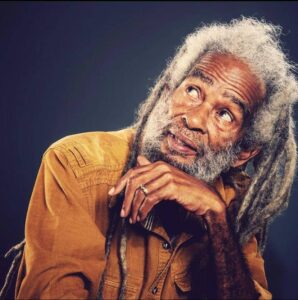
Amy Jacques Garvey: The woman, the time and the place
Oftentimes, articles and papers relating to Amy Jacques Garvey refer to her as the “private secretary” of Marcus Garvey. In real terms she was an excellent record-keeper, archivist, journalist, and author.
Her strong sense of resistance manifested during Garvey’s imprisonment when she held rallies calling for Garvey’s freedom. Most importantly, she put together two volumes of works that she sold to raise funds for Garvey’s defence. It was these two volumes of work that she edited to produce the famous Philosophy and Opinions of Marcus Garvey and later wrote a most incisive and insightful Garvey and Garveyism.
I found the article ‘Jacques Road Community Centre renaming expected to increase heritage tourism’ published by the Jamaica Observer on January 6 interesting and instructive. It is remarkable to see a community honouring and establishing a monument to respect with distinction a significant Jamaican. The idea is enlightening, in terms of the purpose. I hope for it to become, firstly, a satellite for conducting public education on Garveyism at the community level, and secondly, a centre for women empowerment and also a facility that will be able to resurrect pan-Africanism in Jamaica and the Americas. The work and thinking of Jacques Garvey offer most important lessons to the 21st century feminists in Jamaica.
THE WOMAN AND THE MOVEMENT
Jacques Garvey kept the legacy of Garvey alive and made great strides in her own right as an outstanding associate editor and editorial writer for the Negro World, the newspaper of the United Negro Improvement Association (UNIA) of which over 500,000 copies were printed in several languages and distributed globally. Some of her major writings are Garvey and Garveyism, Black Power in America, and The Impact of Garvey in Africa and Jamaica. She belongs to a rare group of women as a major journalist, black feminist, and pan-Africanist in her time.
When I think about Jacques Garvey, the name Una Marson comes to mind. They are two great Jamaicans of that era whose work and political contribution requires greater exploration. It is important to note that Jacques Garvey came to prominence in the post-World War I era. It was a time when racial discrimination, lynching, and violence against black people was a major feature in the American society. It was a time when black people began the great migration to the north and also a time when the 19th Amendment was passed (1920), giving women the right to vote in America.
The movement towards decolonisation in colonial Africa and in the West indies was in its early stages. The voice of the UNIA was echoed into Africa by way of the Negro World. Jacques Garvey was the editorial writer for the column ‘Our women and what they think’. Themes from her articles reflected qualities of pan-Africanism as well as strong messages to black women to become active in their communities, caring mothers, and soldiers of pan-Africanism. She was instructive in her writings, in terms of the role of women in the struggle and as mothers. She warned the men that if and when they fail to provide leadership, the women will not be afraid to take their place.
In ‘Women as leaders’ (October 25, 1925) she writes, “Africa must be for Africans and Negroes, everywhere must be independent. Mr Blackman, watch your step! Ethiopia’s queens will reign again, and her Amazons protect her shores and people.” She continues, “Strengthen your shaken knees and move forward or we will displace you and lead on to victory and glory.” She was well aware of the early steps in the struggle for independence in Africa and the West Indies.
The idea of the role of the mother in the community was powerful and very good lessons to advance at the community level in Jamaica. She states, “Women of all races have a part to play in the development of their particular group as men. Imagine the early years of contact between mother and child when she directs his form of speech and is responsible for his conduct and deportment. Many a man has risen from the depths of poverty and obscurity and made his mark in life because of the (advice and counsel) of a good mother, whose influence guided his footsteps throughout his life.” Jacques Garvey was a private secretary, a wife, and a caring mother.
JACQUES GARVEY AND THE COMMUNITY
It is an important mission to take the work and thinking of Jacques Garvey to the grass root. There is a view that describes her work in terms of “community feminism” because she expresses ideas that aim to inspire black women at the community level to become great thinkers as well as practical politicians.
The move to establish this community centre to honour this great woman is timely because, more than ever, Jamaica needs activities at the community level that will lead to social change. It is my thinking that taking her ideas and work directly to the people on the ground has potential for great transformative forces.
Race-consciousness and self-reliance are essential ingredients for social change in Jamaica, especially within the context of community rebuilding. Garveyism has to do with liberation of the mind as an antecedent to personal and community development. This reawakening of Garveyism is important in resurrecting pan-Africanism in the Americas to develop a critical mass of black people to confront racism in North, Central, and South America.

Louis E A Moyston, PhD, is a consultant and radio talk show presenter. Send comments to the Jamaica Observer or thearchives01@yahoo.com.























